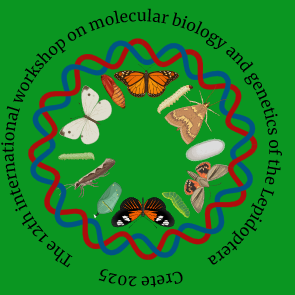Topics include, but are not limited to
- Evolution, Comparative Genomics and Phylogeny
- Functional Genomics
- Genetic analysis of physiological and behavioral traits
- Development
- Physiology and Biochemistry
- Neurobiology
- Pathogens and parasites
- Immunity
- Transgenesis and Paratransgenesis
- Pest Control
- Chemical Ecology
- General Ecology
We will group the received abstracts under mutually fitting headlines such as the examples below.
- Genomics and Genetics
- Genome and chromosome structure and evolution
- Population genetics and systematics
- Genomics-based tools for trait identification and population diagnostics
- Positional cloning
- Molecular mimicry and adaptation
- Mono-, oligo- and polyphagy of herbivores
- Insecticides, resistance and detoxification
- Species adaptation, invasiveness and control
- Development and Physiology
- Cell differentiation
- Endocrinology and hormonal control of development and metamorphosis
- Wing patterning
- Sex determination
- Reproduction
- Immunity
- Neurobiology and behaviour
- Functional genomics and post-genomic tools and applications
- Tissue and cell-specific transcriptomics and proteomics
- Basic regulatory mechanisms
- Epigenetic control of gene expression
- RNA-guided genome editing
- RNA-mediated control of gene expression
- RNA delivery tools (nanoparticles, RNPs, aerosols)
- Recombinant protein expression and post-translational processing systems and applications
- New molecular tools (optogenetics, high throughput (nanopore) sequencing and DNA methylation, fluorescence tags for imaging and macromolecular interactions, genetic and optogenetic cell ablation)
- Parasite and microbiotic control of insect physiology (Wolbachia, Polydna viruses, gut flora)
- Pathology and pest control (pathogens, parasites and viruses)
- Genetic manipulation for plant eaters – understanding fundamental mechanisms
- Chemical ecology (olfaction, gustation, host plant recognition, other forms of chemical communication, interference with chemosensation)
